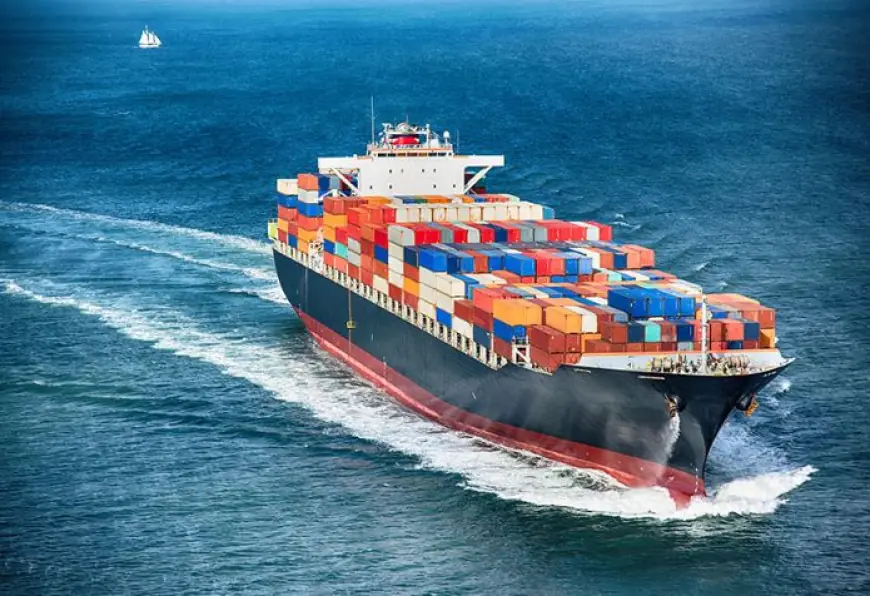How Can Fleet Logistics Support Improve Operations
Explore how smart Fleet Logistics Support strategies can revolutionize operations boosting productivity, reducing costs, and optimizing delivery timelines.

In today’s highly competitive global economy, businesses are continually seeking smarter, faster, and more cost-effective ways to move goods and services. Whether it's a logistics company managing long-haul transport, a delivery startup optimizing last-mile services, or a manufacturing unit distributing goods nationwide Fleet Logistics Support has emerged as a key player in ensuring operational success. But what exactly is Fleet Logistics Support, and how can it improve operations?
Let’s dive into the strategic role of Fleet Logistics Support and explore how it elevates day-to-day business performance.
What is Fleet Logistics Support?
Fleet Logistics Support refers to a comprehensive set of services and technologies used to manage and optimize the performance of a company’s vehicle fleet. This includes vehicle maintenance, route planning, fuel management, telematics, real-time tracking, driver behavior analysis, and more.
At its core, fleet logistics support aims to streamline transportation processes, enhance safety, improve resource utilization, and reduce operational costs—all while ensuring timely deliveries and customer satisfaction.
1. Optimizing Route Planning & Fuel Efficiency
Poor route planning can lead to longer travel times, increased fuel consumption, and delayed deliveries. Fleet Logistics Support uses GPS-based systems and AI-driven algorithms to determine the fastest, most fuel-efficient routes in real time. This minimizes idle time, cuts fuel usage, and lowers carbon emissions.
2. Real-Time Vehicle Tracking & Asset Visibility
With real-time tracking systems, managers can monitor each vehicle’s location, status, and performance metrics. This visibility allows for quick decision-making in case of delays, traffic, or emergencies.
3. Predictive Maintenance & Reduced Downtime
Fleet Logistics Support employs predictive maintenance models that analyze vehicle data to detect early signs of wear and tear. This prevents unexpected breakdowns and costly repairs.
Instead of waiting for a vehicle to fail, managers can schedule maintenance proactively—reducing unplanned downtime and extending the vehicle’s life cycle.
4. Lower Operational Costs
By integrating smart logistics tools—like automated scheduling, paperless documentation, and real-time analytics—companies can drastically cut overhead and manual labor costs. Fleet utilization rates improve, which means fewer vehicles can do more work.
5. Driver Monitoring and Training
Fleet Logistics Support isn’t just about machines—it also focuses on people. Telematics systems can monitor driver behavior, such as speeding, harsh braking, and excessive idling. This information helps train drivers for safer and more efficient driving habits.
6. Data-Driven Decision Making
One of the most powerful aspects of Fleet Logistics Support is its ability to collect and analyze data. This includes delivery times, fuel usage, driver performance, and route metrics. These insights enable businesses to make better strategic decisions, allocate resources more efficiently, and continuously improve their logistics operations.
7. Environmental Responsibility
Sustainability is a growing concern for modern businesses. Fleet Logistics Support helps reduce carbon footprints by optimizing fuel usage, reducing idle times, and enabling electric or hybrid fleet transitions.
Industries That Benefit from Fleet Logistics Support
-
E-commerce & Retail: Faster last-mile deliveries
-
Manufacturing: On-time shipment of parts and products
-
Construction: Equipment delivery and movement coordination
-
Healthcare: Efficient medical supply transport
-
Public Sector: Streamlined emergency and municipal services
Whether managing five vehicles or five hundred, Fleet Logistics Support brings significant advantages to all sectors relying on transport.
Final Thoughts: A Smarter Way to Drive Forward
Fleet Logistics Support is no longer optional—it’s essential for businesses that want to stay ahead of the curve. From enhanced visibility and cost savings to improved driver safety and reduced environmental impact, the benefits are clear and measurable.
As technology continues to evolve, the integration of AI, IoT, and predictive analytics will only make fleet logistics support more powerful. Companies that embrace this transformation today will not only improve their operations—but also build a resilient, future-ready business.
What's Your Reaction?
 Like
0
Like
0
 Dislike
0
Dislike
0
 Love
0
Love
0
 Funny
0
Funny
0
 Angry
0
Angry
0
 Sad
0
Sad
0
 Wow
0
Wow
0


















































